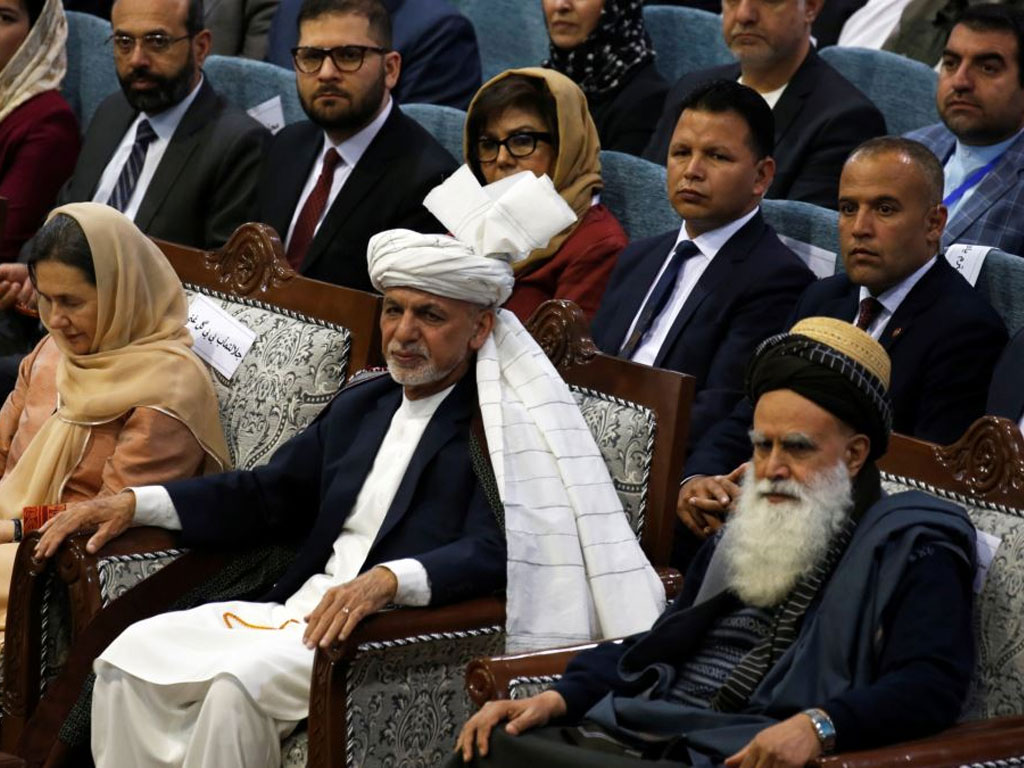Loya Jirga calls for ceasefire

The four-day Loya Jirga (Grand Assembly) invited by President Ashraf Ghani and attended by more than 3,000 Afghans from all walks of life concluded its deliberations this past Thursday, sending a message to government in Kabul, Taliban insurgents and international community that they want nothing but peace in Afghanistan. Since Loya Jirga is essentially a public platform and is called only when the country is confronted with critical challenges its recommendations are expected to be treated as national referendum. It is a time-honoured Afghan tradition, and at times does deliver on issues on agenda - as it did in 2013 when it advised against immediate withdrawal of American troops envisaged by President Obama. Of the recommendations made by this assembly the most passionate is its urgent call for 'an immediate pause in violence which has continued apace across Afghanistan even with various peace summits taking place'. Given history of such peace parleys what the Loya Jirga wants is a distant dream. Not only were Taliban not there, the participation of Kabul government was only partial; Abdullah Abdullah faction was also not there at the Grand Assembly. But even then the Loya Jirga's deliberations were an apt reflection of the Afghan generality's hopes and aspirations, which must be seen and respected by all concerned quarters. Whatever be the agendas of contending powers and their supporters within and outside Afghanistan, the time has come to treat immediate and all-pervasive peace for common man in Afghanistan as prime objective superseding all other considerations. Peace versus political power is crux of the Afghan imbroglio.
The Afghan Loya Jirga has spoken its mind. The issues under discussion and decisions at various interlocutions are troop-withdrawal timetable, ceasefire by Taliban and Taliban's rejection of Kabul government as part of peace talks. And, on all these three fronts there have been series of meetings but as yet there is no tangible breakthrough. Keeping the Afghan government out of the peace process is the Taliban's persistent position, but just to say that President Ghani is a US puppet and therefore unacceptable doesn't make much sense. If history is a guide, to sit with and talk to your worst adversary is an accepted norm at peace meetings. Even if Taliban are in control of more than half of Afghanistan, Kabul is still in the hands of Ashraf Ghani's government, and anyone who is familiar with the Afghanistan history would agree that one who rules Kabul rules Afghanistan. As for immediate ceasefire, it depends upon immediate and unconditional withdrawal of foreign troops - a demand stands justified because President Obama announced total withdrawal then backed out and decided to stay put in Afghanistan. President Trump wants his boys back home as soon as possible, a decision being compromised by his interlocutors at talks with Taliban who tend to predicate full withdrawal upon Taliban's recognition of Ashraf Ghani's setup as third party to the peace process.
No wonder then that even after several rounds of peace meetings there are no indication that peace is on its way to Afghanistan. In fact the way forward demands tangible flexibility on the parties' part in terms of accepting ground realities as they tend to obtain in today's Afghanistan. First of all, the Taliban need to refurbish their image - more so now because its past is not very different from the present of the Islamic State. "We don't want such a peace that women's rights are not respected, freedom of expression is not ensured, elections are not held," said one who was part of a committee set up by the Loya Jirga. At the same time the rulers in Kabul must accept the reality that on their own they cannot withstand the Taliban advances, and if the anti-Pakistan Taliban who foment trouble on border with Pakistan are in Kabul's control. Lastly, but more importantly, peace in Afghanistan is no more contingent upon presence of foreign troops - on the other hand their timely withdrawal would quicken the pace for Afghan national reconciliation and political togetherness. And if not then let Kabul stew in its own juice.



















Comments
Comments are closed.